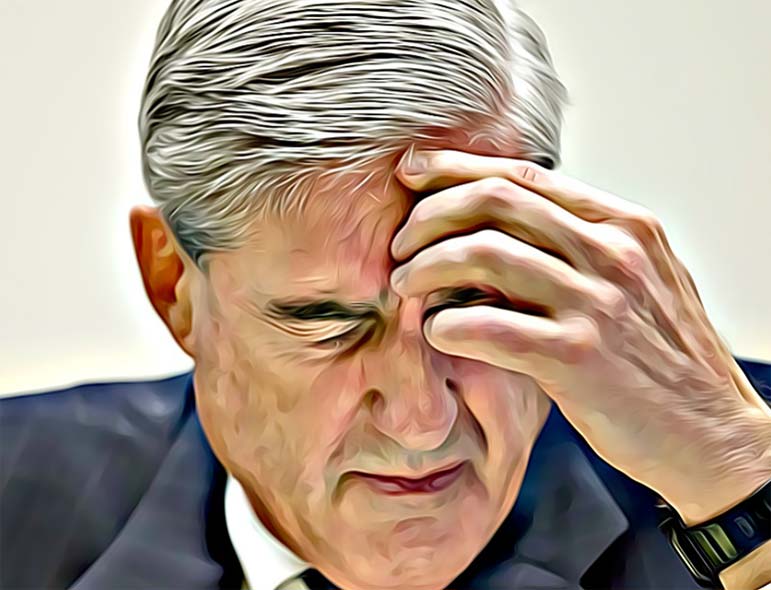
In virtually every significant contested race where Trump campaigned for the GOP candidate -- especially in the Senate - the president's endorsement carried the Republican across the threshold, assuring Trump of another reliable vote in Congress. Mueller has gained a handful of convictions so far, but the potential for significant revelations by the special counsel's final report appears to have played no role in the voting by Republicans or Democrats. Two evident consequences flow from the Trump effect on the midterms.
First, the president has been able to fire Sessions, whose recusal from investigating Russia's election interference resulted in Mueller's appointment, and immediately replace him, at least temporarily, with a loyalist, Matthew Whitaker, who already is on the record criticizing Mueller's investigation. This action ends Deputy Attorney General Rod Rosenstein's role as a protective buffer between Mueller and the president.
The new attorney general, whether it is Whitaker or someone else, will be free to constrain Mueller's investigation and suppress the special counsel's findings: Any report by Mueller must go to the attorney general, who decides what, if anything, to do with it. Sessions' replacement will be far more comfortable suppressing the report now that firmer Republican control of the Senate protects not only Trump, but also the new attorney general from any risk of being ousted in a post-impeachment trial.
Second, though the Democrats' new House majority will give them the opportunity to annoy Trump and to hector the new attorney general, Mueller no longer has any chance of securing the legislative protection for his investigation that had been proposed in recent months. Republicans expanded their Senate majority in the midterms, picking up at least three seats and shedding the few Republicans - such as the retiring Bob Corker (Tenn.) and Jeff Flake (Ariz.) - who might have been interested in protecting the integrity of the investigation.
This senatorial shift in Trump's favor makes the prospect of impeachment by the House an even less plausible brake on the president's desire to short-circuit Mueller. There is little chance that any evidence of Trump's misconduct the House could produce, even with the fruits of Mueller's investigation, would persuade 20 or so Republican senators to join Democrats in reaching the constitutionally required two-thirds majority (67 votes) necessary to convict and remove the president after impeachment.
It is almost inconceivable that Mueller would be able to uncover the kind of smoking-gun evidence that, in 1974, led key Republican senators to warn President Richard Nixon that he would lose an impeachment trial in the Senate, thus forcing his resignation. Even an incriminating recording such as the one that helped bring down Nixon would not suffice. Recall how Trump, during the presidential campaign, finessed the infamous "Access Hollywood" tape revealing his bragging about groping women - his imaginative suggestion that the voice on the tape might not be his seems to have been accepted by many of his credulous supporters.
Given Senate Republicans' ardent support for Trump, and their fortified majority, House Democrats likely would face an impossible task in pursuing an effective impeachment, no matter what Mueller uncovers.
The net effect: Trump may be emboldened to strangle the Mueller investigation. The president has many ways to end the inquiry - which he has regularly tried to discredit as a "witch hunt" and a "hoax" - with no fear of paying a serious political price. The most drastic step would be simply to pardon everyone involved in the case, even trying to include himself. But instructing a new attorney general to revoke Mueller's appointment, cut off the special counsel's resources or quash his final report could also get the job done.
If Mueller's report were indeed buried by a new attorney general, a Democratic-controlled House Judiciary Committee would demand access to it. But Trump would surely come up with reasons for ordering the Justice Department to defy such a demand, such as claiming executive privilege. Justice Brett Kavanaugh's confirmation to the Supreme Court last month gave Trump another vote likely to defer to assertions of presidential prerogative in any constitutional confrontation with a special counsel or a House committee.
Democrats have much to celebrate about the midterms, but their elation should be tempered by the realization that the election also may have spelled the end for Mueller's Russia investigation, which was too long in getting to the punchline.
(COMMENT, BELOW)
Lacovara is the former president of the District of Columbia Bar and counsel to the Watergate special prosecutors.


 Contact The Editor
Contact The Editor
 Articles By This Author
Articles By This Author